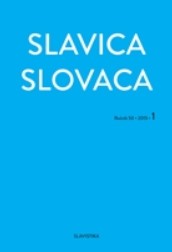K hospodárskej a kultúrnej modifikácii Slovákov v argentínskom Chacu
Towards the Economic and Cultural Modification of Slovaks in the Argentinian Chaco
Author(s): Ján BotíkSubject(s): Agriculture, Economic history, Interwar Period (1920 - 1939), Ethnic Minorities Studies, Socio-Economic Research
Published by: Slavistický ústav Jána Stanislava Slovenskej akadémie vied
Keywords: Slovaks; Chaco; Agriculture; Cotton production; Cattle-breeding;
Summary/Abstract: The objective of the study is to characterize the Slovak community in the northern Argentine province of Chaco, which was formed between 1923 and 1935 in the town of Saenz Peña and its surroundings. Approximately three-quarters of the Slovak immigrants in Chaco came from Slovak minorities in Hungary, Romania, Yugoslavia, and Bulgaria, which were established there during the 18th-19th centuries. The different natural, economic, ethnic, linguistic, and cultural conditions in the Chaco province caused discontinuous trends to become dominant in the ethno-cultural development of the Slovak colonists. Their consequence was the emergence of the Argentinian variety of the Slovak dialect. There was also an economic transition from the family subsistence farming to farming whose production was dictated by the demands of the market.
Journal: Slavica Slovaca
- Issue Year: 58/2023
- Issue No: 03
- Page Range: 484-488
- Page Count: 5
- Language: Slovak

